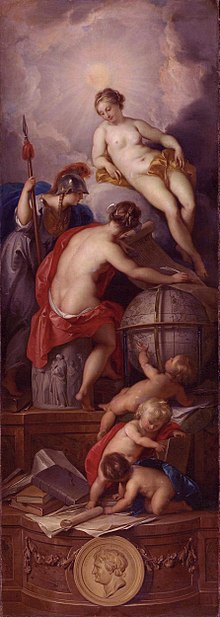
A | B | C | D | E | F | G | H | CH | I | J | K | L | M | N | O | P | Q | R | S | T | U | V | W | X | Y | Z | 0 | 1 | 2 | 3 | 4 | 5 | 6 | 7 | 8 | 9

Historiography is the study of the methods used by historians in developing history as an academic discipline, and by extension, the term historiography is any body of historical work on a particular subject. The historiography of a specific topic covers how historians have studied that topic by using particular sources, techniques of research, and theoretical approaches to the interpretation of documentary sources. Scholars discuss historiography by topic — the historiography of the United Kingdom, of WWII, of the pre-Columbian Americas, of early Islam, and of China — and different approaches to the work and the genres of history, such as political history and social history. Beginning in the nineteenth century, the development of academic history produced a great corpus of historiographic literature. The extent to which historians are influenced by their own groups and loyalties — such as to their nation state — remains a debated question.[1][2]
In Europe, the academic discipline of historiography was established in the 5th century BC with the Histories, by Herodotus, who thus established Greek historiography. In the 2nd century BC, the Roman statesman Cato the Elder produced the Origines, which is the first Roman historiography. In Asia, the father and son intellectuals Sima Tan and Sima Qian established Chinese historiography with the book Shiji (Records of the Grand Historian), in the time of the Han Empire in Ancient China. During the Middle Ages, medieval historiography included the works of chronicles in medieval Europe, the Ethiopian Empire in the Horn of Africa, Islamic histories by Muslim historians, and the Korean and Japanese historical writings based on the existing Chinese model. During the 18th-century Age of Enlightenment, historiography in the Western world was shaped and developed by figures such as Voltaire, David Hume, and Edward Gibbon, who among others set the foundations for the modern discipline. In the 19th century, historical studies became professionalized at universities and research centers along with a belief that history was like a science.[3] In the 20th century, historians incorporated social science dimensions like politics, economy, and culture in their historiography.[3]
The research interests of historians change over time, and there has been a shift away from traditional diplomatic, economic, and political history toward newer approaches, especially social and cultural studies. From 1975 to 1995 the proportion of professors of history in American universities identifying with social history increased from 31 to 41 percent, while the proportion of political historians decreased from 40 to 30 percent.[4] In 2007, of 5,723 faculty in the departments of history at British universities, 1,644 (29 percent) identified themselves with social history and 1,425 (25 percent) identified themselves with political history.[5] Since the 1980s there has been a special interest in the memories and commemoration of past events—the histories as remembered and presented for popular celebration.[6]
Terminology
In the early modern period, the term historiography meant "the writing of history", and historiographer meant "historian". In that sense certain official historians were given the title "Historiographer Royal" in Sweden (from 1618), England (from 1660), and Scotland (from 1681). The Scottish post is still in existence.
Historiography was more recently defined as "the study of the way history has been and is written—the history of historical writing", which means that, "When you study 'historiography' you do not study the events of the past directly, but the changing interpretations of those events in the works of individual historians."[7]

